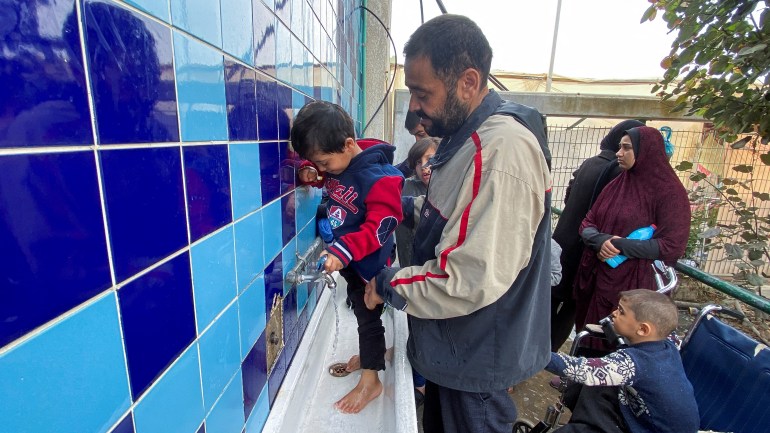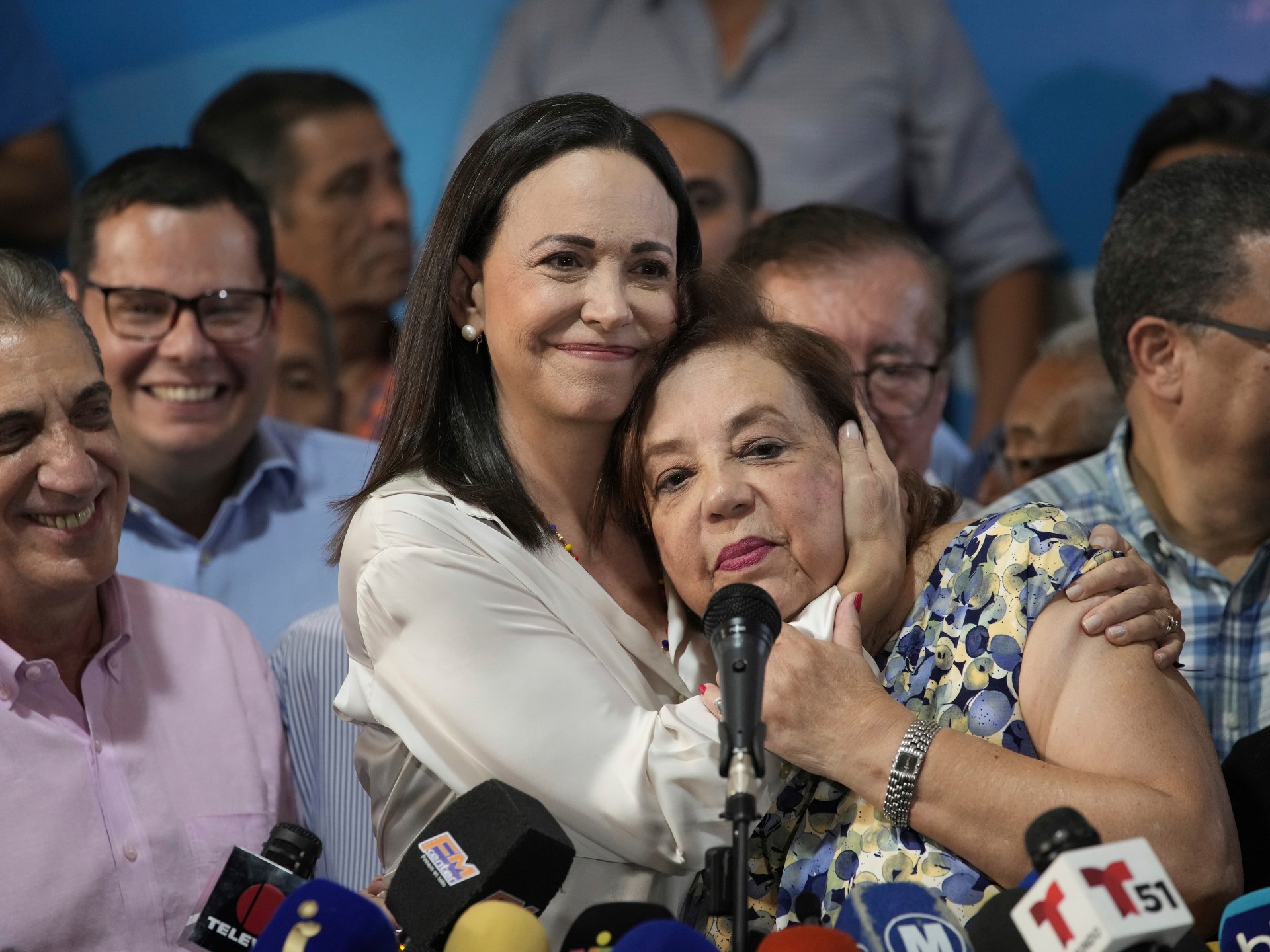
Al-Fukhari, Gaza Strip – Palestinians in Gaza who spoke to Al Jazeera are tired and heartbroken as they have to leave their homes and move again and again in search of safety.
Many are praying for an end to the displacement and suffering that has been tearing Gaza apart for more than 60 days.
In al-Fukhari, south of the town of Khan Younis, the European Hospital and schools are overcrowded with thousands of displaced people from Khan Younis itself and areas further north.
They continue to move south at the request of the Israeli army, leaving areas where they either lived or were already displaced towards so-called “safe zones” that the Israeli army has already bombed.
Dr. Youssef Al-Akkad, director of the European Hospital, told Al Jazeera that his teams were overwhelmed by the sheer number of people and were neither trained nor able to provide them with assistance.
“The displaced people are in the corridors, departments and gardens of the hospital. The lack of water will lead to infections and cases of cholera are already occurring. This is such a difficult and catastrophic situation.”
The displaced people around the European Hospital, forced to camp on the streets due to overcrowding, each have a story of suffering to tell. They hope that they have finally reached a safe area near al-Fukhari. Unfortunately, most of them no longer believe in the idea of a safe space.
Rula Musmah, 40, says: “I’ve never experienced this before. We were moved four times until we arrived at the European Hospital, where there was not a single place for us. I was looking for a cafe where me and my three daughters could sleep at night and just sit on the street during the day.”
Musmah and her daughters, aged 15 to 18, left Gaza City on October 14 when the army asked people to leave.
“We have a beautiful house in the industrial area that we left because there was a risk that our daughters would be hurt. We went to the Deir el-Balah camp, where we stayed with friends for more than a month. But the house there became so crowded as more displaced people arrived and the bombing increased that we decided to look for another safe place.
“We had been in Khan Younis for two weeks when the ceasefire began. We were glad we could take a short break from the bomb noise, even though nothing had changed. It was difficult to get water and food, but at first we felt a little safe. But then news broke that the Israeli government was threatening to move its operation to Khan Younis.
“I felt like my heart would just stop, I was so scared. The [Israeli military] pamphlets [to evacuate] began to invade the city again. We started looking for another place and found nothing other than al-Fukhari. We were among hundreds of people, there was no space in the European Hospital or in the schools. The schools cannot accept any more people.”
Musmah’s eyes filled with tears and her voice was choked with sadness because she had ended up on the street.
No space available
With nowhere else to go, people began setting up tents in an empty lot near the hospital entrance. The site itself had already been hit twice by Israel, but with no other choice, hundreds of displaced people sought refuge there.
Salem Awaida, 55, said he managed to stay at his home in Khan Younis until recently. “I had displaced people from Shujayea in my house. I was taking care of her and there was so much going on that I didn’t know how my day started or ended. Imagine my shock when they asked people in Sheikh Nasser district to leave.

“I didn’t believe it at first and waited another day, but then two days ago there was a really bad night of bombing, a ‘belt of fire’ stretched tightly around the area, and this morning they said tanks had entered Khan Younis, not far away from my neighborhood. So I, my family of ten, and the displaced people living with us went east to al-Fukhari.
“It wasn’t safe at all. It was a really hard night at the European Hospital where I was bombarded sitting in the hospital garden until the late hours of the morning. There was no room for me inside. Finally, I went for a little walk, tried to breathe and think, and I came across people setting up here on this empty lot, so I set up a tent for myself and my family.
“We see rockets lighting up the sky at night, but I’m not afraid. After this long onslaught, death seems more merciful than anything else.”
Al-Fukhari is not a well-developed area. It has few supplies and little water, having historically relied on supplies from Khan Younis, from which it is currently cut off by Israeli incursions.
This means that such a large number of displaced people cannot be supported, spreading fear among them as they also worry about the spread of disease due to the lack of water and hygiene.
There are few shopkeepers and supplies are very limited.
“There are no shops here that sell vegetables and there are no supplies we can buy. We only rely on the tiny amounts provided by UNRWA [UN Relief and Works Agency for Palestine Refugees] Help,” said Khaled Muammar, 32.
“There will be a famine because the city will be under siege and we will not have access to the market to buy what our children need.”






Recent Comments